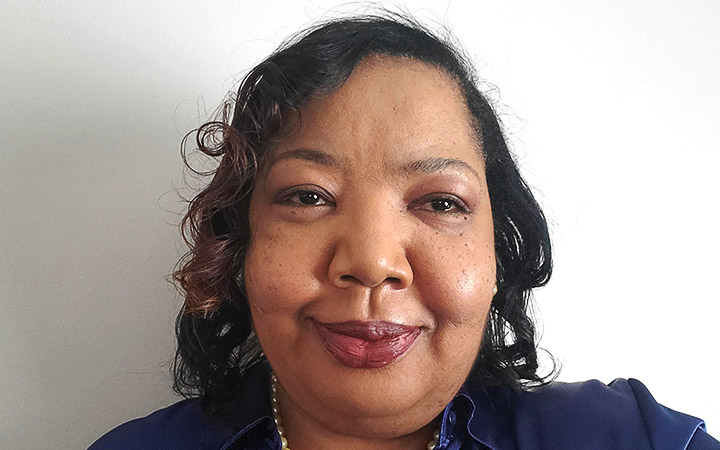Patient Has Steady Success with Integrated Treatment for Cardiovascular Disease
January 20, 2022

Denise had considered bariatric surgery in the past but decided against it. She started slowly exercising on her own and saw some initial success that gave her the drive to do even more.
“I needed a lifestyle change,” she says. “I didn’t want or need a surgery. I needed something that I could use that could carry me for the next five, 10, 15 years.”
In December 2020, Denise reached out to UH Harrington Heart & Vascular Institute’s Center for Integrated and Novel Approaches in Vascular-Metabolic Disease (CINEMA).
UH CINEMA’s focus is at the intersection of cardiovascular disease, type 2 diabetes, and obesity. The major consequence of metabolic disorders is cardiovascular complications such as coronary, cerebrovascular, and peripheral artery disease. Referred patients have a multidisciplinary initial appointment health assessment to review questions about their diabetes, along with screening for kidney disease, heart disease, and related risk factor management (blood pressure, cholesterol and triglycerides, smoking, diet and exercise). Multiple specialists then review the assessment and share combined treatment recommendations to lower the potential risk for diabetes-related heart and kidney complications.
“Denise was a prime candidate for our CINEMA program,” says Ian Neeland, MD, director of cardiovascular prevention and co-director of the Center for Integrated and Novel Approaches in Vascular-Metabolic Disease for UH Harrington Heart & Vascular Institute. “When she enrolled in the program, her metabolic issues were out of control. In addition to several risk factors such as type 2 diabetes, high blood pressure, and obesity, she had a very strong family history of coronary artery disease. She was going straight down a path toward cardiovascular complications and really needed our intervention.”
At the end of 2020, Denise weighed 261 pounds with a BMI of 39.2. It was December, and she treated the process like a resolution, but also a lifestyle shift and journey.
“It’s the small successes that equal the big picture. You can’t climb the mountain in one day. You have to start at the bottom and work your way up. I did 10 pounds at a time. That was my goal and that worked for me. Start off small,” she says.
With the help of CINEMA, Denise made slow but steady progress. She began walking one mile three times a week. She gradually ate smaller portions of higher quality foods and focused on a plant-based diet. She participated in group meetings to talk about her progress and keep her on track. Her doctor prescribed the medications Ozempic and Jardiance – both proven to reduce risk for heart disease and death.
“Through CINEMA, my doctors all worked together to manage my various conditions and problems. It was a real multi-disciplinary approach, which I appreciated so much. I knew all of my doctors were communicating and collaborating to get me the best results,” she says.
By September 2021, Denise’s weight had decreased to 225 pounds with a BMI of 33.8. In December 2021, one year after beginning her journey, Denise is down to 220 pounds with a BMI of 33. Her diabetes and cholesterol numbers have dropped to normal levels.
“I feel more energetic. I feel better about myself. I can’t wear half the clothes I had before, but I don’t have the excess skin that I would have from a quick surgery or quick weight loss,” she says.
“Our approach is the healthiest way for a patient with diabetes and heart disease risk factors to improve their health,” Dr. Neeland says. “By training patients to make real lifestyle changes to the way they think and act with food and physical activity, and prescribing the most effective, life-sustaining medications combined with cutting-edge testing and treatments where needed, we help patients gain a holistic, big-picture understanding of their health issues and how to take a fresh look at conquering barriers that have impeded their health journey. We aim to empower patients to have the knowledge and ability to live healthier lives, free from heart disease and diabetes complications.”
Denise says she would tell anyone to get motivated and make small, reasonable changes that are sustainable over time.
“I tried the fad diets back in the day. They didn’t work for me. They weren’t sustainable,” Denise says. “This has become second nature to me. It’s my lifestyle. It’s my routine. I can do this from here on out. This is a steady lifestyle change that I can keep up. This is doable for me. This is my life and I’m so happy to feel better and be in better control of my health.”


